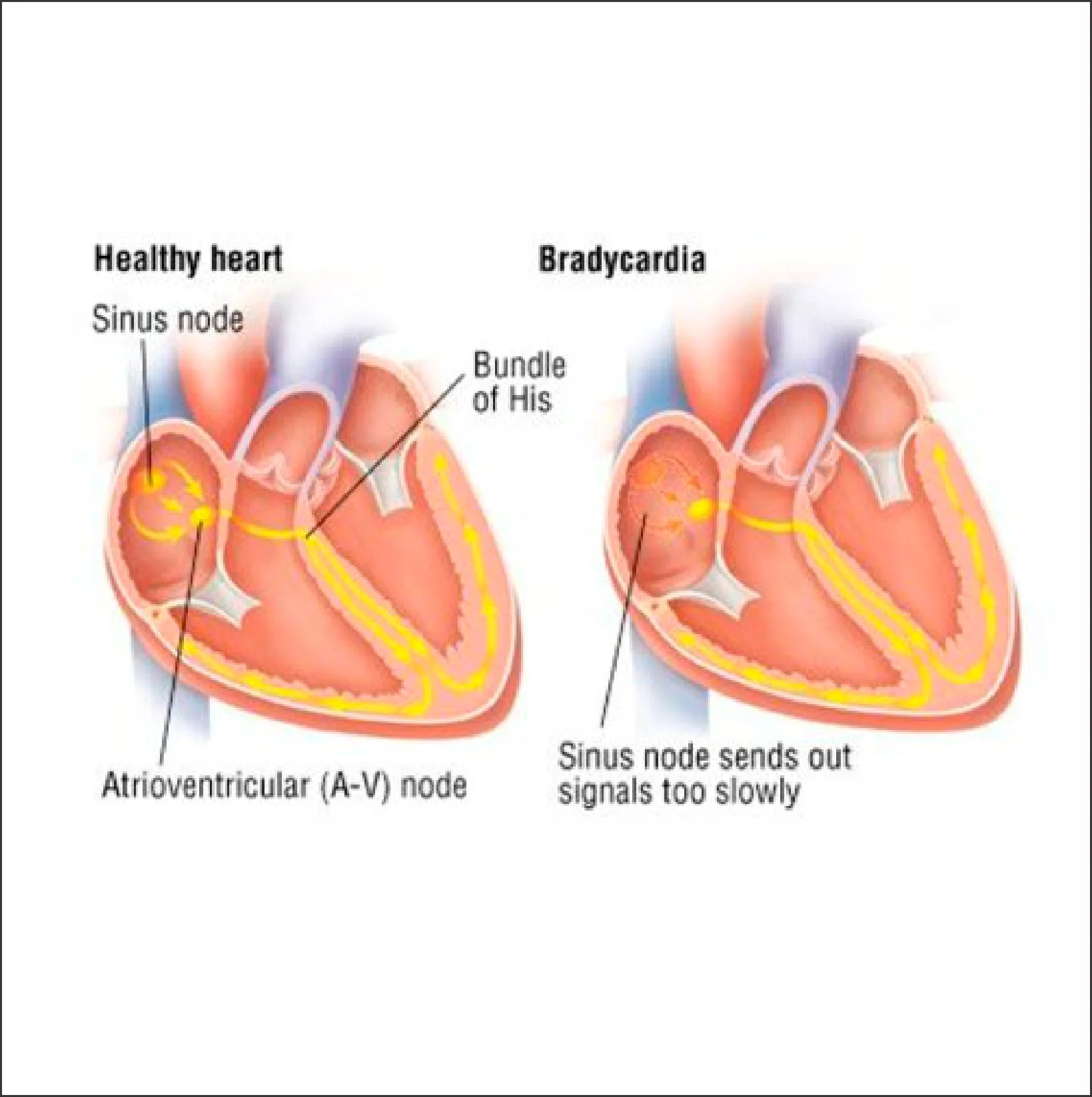
Department of Critical Care
Welcome To Gangasheel Hospital
What is Bradycardia ?
Radicardia (brad-e-KAHR-dee-uh) is a slow heart rate condition. An adult's resting heart usually beats 60-100 times per minute. With bradycardia, his heart beats less than 60 times per minute.
Bradycardia can be a serious problem when the heart rate is so slow that the heart cannot pump enough oxygenated blood around the body. In this case, people may feel dizzy, extremely tired, weak and short of breath. Sometimes bradycardia doesn't cause symptoms or complications.
A slow heart rate isn't always a concern. For example, a resting heart rate between 40 and 60 beats a minute is quite common during sleep and in some people, particularly healthy young adults and trained athletes.
If bradycardia is severe, an implanted pacemaker may be needed to help the heart maintain an appropriate rate.
A slower than normal heart rate (bradycardia) can prevent the brain and other organs from getting enough oxygen, which can lead to the following signs and symptoms:
- Fatigue due to physical activity
- Fainting (syncope) or near syncope
- Shortness of breath
- Heart tissue damage due to aging
- Heart tissue damage due to heart disease or heart attack
- Heart conditions present at birth (congenital heart disease)
- Inflammation of heart tissue (myocarditis)
- Heart complications surgery
- Hypothyroidism (hypothyroidism)
- Imbalance of chemicals in the blood such as potassium and calcium
- Recurrent pauses in breathing during sleep (obstructive sleep apnea)
- Inflammatory diseases such as rheumatic fever and lupus
- Certain drugs, including tranquilizers, drugs used to treat opioids, arrhythmias, hypertension, and certain mental disorders.
Prophylaxis
Bradycardia can be caused by certain medications, especially when taken in large doses. Therefore, it is important to take all prescribed medicines. Although bradycardia cannot usually be prevented, health care providers recommend strategies to reduce the risk of heart disease.
Follow these heart health steps:
- Get regular exercise: Your health care provider can provide recommendations on how much and what type of exercise is best for you.
- Healthy Eating: Eat a healthy, low-fat, low-sodium, low-sugar diet rich in fruits, vegetables, and whole grains.
- Maintain a healthy weight: Obesity increases the risk of developing heart disease.
- Controls blood pressure and cholesterol: Make lifestyle changes and take prescribed medications to treat high blood pressure, diabetes, and high cholesterol.
- No Smoking: If you need help quitting smoking, talk to your doctor about strategies and programs that can help you.
- Drink alcohol in moderation: If you do decide to drink alcohol, do so in moderation. For healthy adults, up to 1 serving per day for women and 2 servings per day for men.
- People who do not have bradycardia but have no symptoms are unlikely to need treatment.
- For symptomatic people, bradycardia is most often treatable and sometimes curable.
- If the bradycardia is caused by another disorder, treating that disorder alone may stop the bradycardia. For example, if a drug you are taking is causing your bradycardia.
Yes, Bradicardia treatment is available in Bareilly at Gangasheel Hospital by the team of expert Critical Care doctor's in the city.
